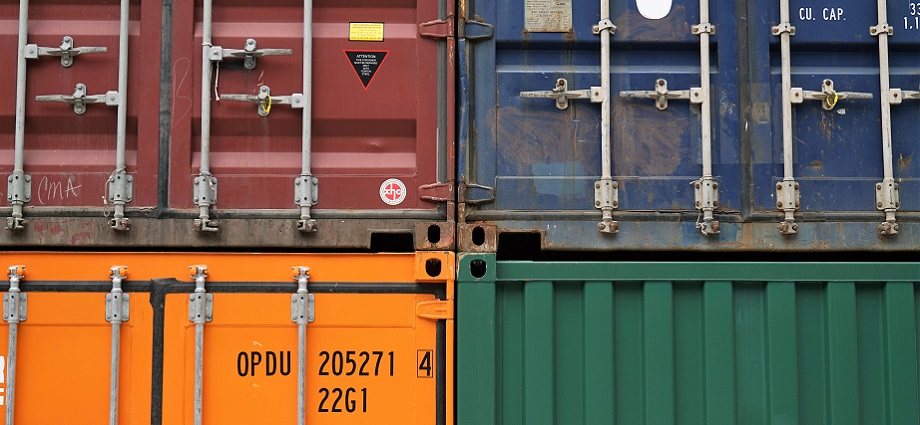As technology advances, businesses need to adapt to new ways of operating to remain competitive. Blockchain technology is one of the most exciting technological innovations of our time, and it has the potential to transform the way we do business. Blockchain in supply chain management is one such application, and it is rapidly gaining popularity.
Introduction
In recent years, the supply chain has become increasingly complex, with many businesses outsourcing production and distribution to multiple suppliers across the globe. This complexity makes it difficult to keep track of goods as they move through the supply chain, increasing the risk of fraud, errors, and delays. Blockchain technology offers a solution to these problems by providing a secure and transparent platform that enables businesses to track their products from production to delivery.
What is Blockchain?
To begin our discussion on the application of blockchain in the supply chain, it’s important to first define the technology. In essence, blockchain can be described as a secure and transparent digital ledger that records transactions. It operates in a decentralized manner, meaning that there is no central authority in charge of the network.
How Blockchain is Being Used in the Supply Chain
Blockchain in supply chain management provides a secure, transparent, and tamper-proof platform that enables businesses to track their products from production to delivery. The technology works by creating a digital record of each transaction, which is then added to a chain of blocks. Each block contains a unique code that links it to the previous block in the chain, creating an unbreakable chain of transactions.
Benefits of Using Blockchain in the Supply Chain
There are several benefits to using blockchain in the supply chain, including increased transparency, improved traceability, and reduced fraud and errors. Here are some of the main advantages:
Increased Transparency
Blockchain provides a secure and transparent platform that enables businesses to track their products from production to delivery. This transparency helps to build trust between businesses and their customers, as it provides a clear and verifiable record of each transaction.
Improved Traceability
Blockchain enables businesses to track their products at every stage of the supply chain, from production to delivery. This improves traceability and enables businesses to quickly identify and resolve any issues that arise.
Reduced Fraud and Errors
Blockchain provides a tamper-proof platform that makes it difficult for fraudsters to alter records or manipulate transactions. This reduces the risk of fraud and errors, which can save businesses time and money.
Examples of Blockchain in the Supply Chain
Blockchain is already being used in several industries, including finance, healthcare, and supply chain management. Here are some examples of how blockchain is being used in the supply chain:
Walmart
Walmart is using blockchain technology to track the origin of the products it sells. This enables the company to quickly identify the source of any product recalls and remove affected products from its stores.
Maersk
Maersk, the world’s largest shipping company, is using blockchain technology to track the movement of its shipping containers. This improves traceability and enables the company to quickly identify any delays or issues that arise.
De Beers
De Beers, the world’s largest diamond producer, is using blockchain technology to track the origin of its diamonds. This enables the company to provide customers with a clear and verifiable record of each diamond’s journey from the mine to the jewelry store.
Here are some key points about the future of blockchain in the supply chain:
Standardization: As more businesses adopt blockchain in their supply chains, there will be a need for standardized protocols to ensure interoperability between systems. The development of standard protocols will help to reduce the complexity and cost of integrating blockchain into supply chain management.
Increased adoption: As businesses begin to see the benefits of blockchain in supply chain management, we can expect to see increased adoption of the technology. This will lead to more innovation and competition in the market, which will help to drive down costs and improve the quality of solutions.
Improved scalability: Currently, one of the main challenges of blockchain in the supply chain is scalability. However, as the technology continues to evolve, we can expect to see solutions that can handle larger volumes of data and transactions.
Integration with other technologies: Blockchain is not the only technology that can benefit the supply chain industry. We can expect to see more integration between blockchain and other technologies such as artificial intelligence, machine learning, and the Internet of Things (IoT) to create more robust and efficient supply chain systems.
Increased transparency: As more businesses adopt blockchain in their supply chains, we can expect to see increased transparency throughout the supply chain. This will lead to greater trust between businesses and customers, which can improve the overall health of the industry.
Challenges of Implementing
While there are many potential benefits of implementing blockchain in the supply chain, there are also some significant challenges that need to be addressed. Two of the main challenges are the cost and complexity of integration, and the need for standardized protocols.
Cost and complexity of integration
Adopting blockchain requires significant investment in infrastructure and resources, and the integration process can be complex and time-consuming. Businesses need to be willing to commit resources to the integration process and work through any technical challenges that arise.
Need for standardized protocols
Currently, there is a lack of standardization in the industry, which can make it difficult for businesses to integrate blockchain into their existing systems. This can result in higher costs and longer implementation times. Standardized protocols would make it easier for











